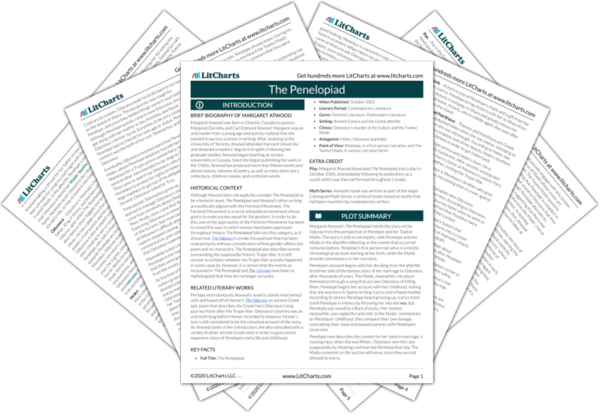LitCharts assigns a color and icon to each theme in The Penelopiad, which you can use to track the themes throughout the work.
Storytelling, Textual Authority, and Falsehoods
Class, Womanhood, and Violence
Antiquity, Modernity, and Progress for Women
Christianity vs. Greek Religion
